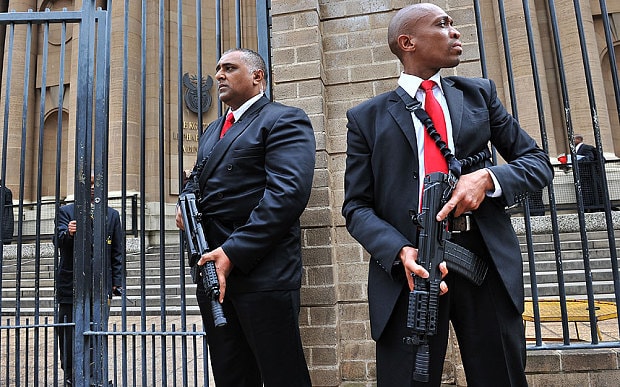Private Security Re-Engineered: More Than a Decade After Westgate, What Has Changed and What Still Must

By Patrick Muasya, SGA Security Kenya Head of Operations, Guarding
As we commemorate the tragedy that was the Westgate Mall terrorist attack twelve years ago on September 21, 2013, we remember those we lost and those still experiencing the aftermath of that horrific day. The attack exposed gaping vulnerabilities in private security, emergency response, surveillance systems and intelligence coordination.
Twelve years on, while Kenya has made strides in strengthening its public security architecture and legislative oversight, the private security sector remains central not merely as first responders but as vital parts of prevention, detection, and mitigation of terror threats. The attack, which cost 67 lives and left many more injured, was a wakeup call for commercial establishments, shopping centres and private security firms that previously focused largely on guarding and access control.
In the years since, private security firms have expanded their role. Physical screening and visitor verification, enhanced CCTV and surveillance deployment, the use of sniffer dogs and more rigorous vetting of guards have become common features at malls, hotels and business complexes. For example, when Westgate reopened in mid-2015, the management enhanced individual screening, surveillance, and perimeter and vehicle checks, including undercarriage scanners, explosive detectors and bolstered CCTV as part of an upgraded security architecture. These changes marked a shift from reactive guarding to more layered, multi-modal threat detection and intelligence awareness.
Regulation has also tightened in the private security space. The Private Security Regulatory Authority (PSRA) now requires unique identification for security personnel, enforces agreed training standards and vetting procedures, and mandates periodic retraining in some cases. Moreover, private security guards are more often being recognised as part of broader security networks; their roles now include being intelligence multipliers, observing suspicious behaviour, reporting, liaising with law enforcement, and preserving crime or terror scenes until the relevant authorities arrive.
On technology and investment, threat perceptions in Kenya in 2025 remain elevated, shaped by regional instability, rising incidents of organised crime, and emerging threats in cyber and hybrid domains. Private sector investment in high-resolution CCTV, electronic access control, vehicle screening systems, alarm systems, and integration with monitoring centres continues to grow. Businesses, especially in retail, real estate, and hospitality, are increasingly treating security spend not as cost but as essential risk mitigation and part of their “peace-of-mind” offering to customers and tenants. Anecdotally, firms are also deploying more advanced analytics in video surveillance for example, behavioural recognition, and increasing coordination with private intelligence sources.
Yet gaps remain. Many private security firms are still working under serious constraints such as inconsistent training curricula, with weak standardisation across providers, and limited capacity in threat intelligence and quick emergency response. The ability of most guards in a mall to detect suspicious behaviour such as reconnaissance or surveillance activity is still not universally matched with protocols that allow safe, fast reporting and follow up.
At SGA Security, we have taken deliberate steps to bridge these gaps. Our guards undergo trainings that go beyond basic guarding to include intelligence gathering and emergency response. We have also invested in technology-driven solutions such as real-time incident reporting tools, and integrated surveillance systems. Recognising that a poorly motivated guard is a weak link, SGA has prioritised guard welfare, offering continuous professional development and protective gear. Importantly, SGA actively collaborates with law enforcement agencies through information-sharing and joint patrols ensuring that our officers are not just stationed at posts but are integrated into Kenya’s wider security ecosystem.
Regulatory oversight, while improved, is sometimes reactive rather than proactive. Furthermore, technology deployment tends to be more robust in upscale properties, many smaller commercial venues and informal business areas remain under-protected.
In line with the 2025 International Day of Peace theme, “Act Now for a Peaceful World”, the private security sector is called not just to respond but to act proactively to build peace in shared public spaces through safety, trust, dignity, and respect. Security is a foundation for peace, people need to feel safe to congregate, to trade, to pray and to learn. When private security companies invest in ethical practices, guard welfare, community engagement, and inclusive approaches, they contribute directly to social peace.
A way forward demands sharpening the situational analysis and scaling up certain measures in the private security domain. Training programmes should include modules on not only threat detection, radicalisation awareness, and emergency response but also conflict resolution, human rights, mental health, and community relations. PSRA-accredited training should be periodic, audited for quality, and adapted to evolving threats, including cyber, hybrid and asymmetric ones. Public-private inter-agency collaboration must become more structured, building on the Private Security Regulation Act that already recognises guards as auxiliary to national security, with shared intelligence platforms, regular joint drills, and clear standard operating procedures that enable private security firms to work seamlessly alongside law enforcement, emergency services, and community leaders. Guard welfare must be considered ensuring they have better protective gear, ongoing professional development, and psychological support. Finally, accountability mechanisms must be deeply embedded performing regular audits and inspections, transparent incident reporting, and lessons learned institutionalised, so that failures, whether from human error or system design, are not repeated.
Reflecting on Westgate’s anniversary in 2025 reveals that while Kenya’s private security sector has certainly evolved, the war of adaptation continues: adversaries shift tactics, technology advances, and public spaces multiply. For private security companies like SGA Security, the lesson is clear: private security role must be an integrated pillar of national resilience, rooted in professionalism, ethical integrity and inclusive peace. Only then will we honour those lost by making “never again” more than a slogan.




